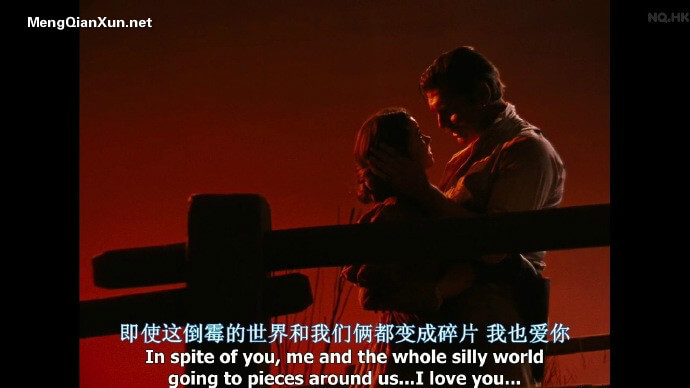《金陵怀古》是中国唐代文学家刘禹锡的诗作。此诗前半部分写所见之景,点出与六朝有关的金陵名胜古迹,以暗示千古兴亡之所由;后半部分通过议论和感慨借古讽今,揭示出全诗主旨。全诗炼字精妙,感慨深沉。
金陵怀古
刘禹锡
潮满冶城渚[1],
日斜征虏亭[2]。
蔡洲[3]新草绿,
幕府[4]旧烟青。
兴废由人事,
山川空地形。
后庭花[5]一曲,
幽怨不堪听。
注释:
[1] 冶城渚:位于今江苏南京朝天宫一带,据说是东吴时期冶炼吴钩、吴刀的场所。
[2] 征虏亭:位于南京市玄武湖北,东晋时征虏将军谢石的哥哥谢万曾在这里送客。
[3] 蔡洲:长江过南京江段中心的小岛。
[4] 幕府:指金陵门户幕府山,因东晋王导曾在这里建立幕府屯兵而得名。
[5] 后庭花:指《玉树后庭花》这首曲子,由南朝陈后主陈叔宝创作,后人一般用“后庭花”来象征导致陈灭亡的陈叔宝的骄奢淫逸。
Memories at Jinling
Liu Yuxi
The tide overwhelms the forge’s site,
The tower drowned in slanting sunlight.
The islet covered with grass green,
And hills are veiled by a smoke screen.
Man decides a state’s rise and fall,
Hills and streams can do nothing at all.
O hear the captive ruler’s song!
How can you bear his grief for long?
Jinling was the capital of six dynasties (220—604). The last ruler fond of pleasure-making became a captive and the place where weapons were forged was overwhelmed by the tide.
未经允许不得转载:帕布莉卡 » 刘禹锡《金陵怀古》 -经典诗词英译-中英双语赏析
 帕布莉卡
帕布莉卡


 爱是一颗心遇到另一颗心(出处+配图)
爱是一颗心遇到另一颗心(出处+配图)  《乱世佳人》电影专题
《乱世佳人》电影专题

